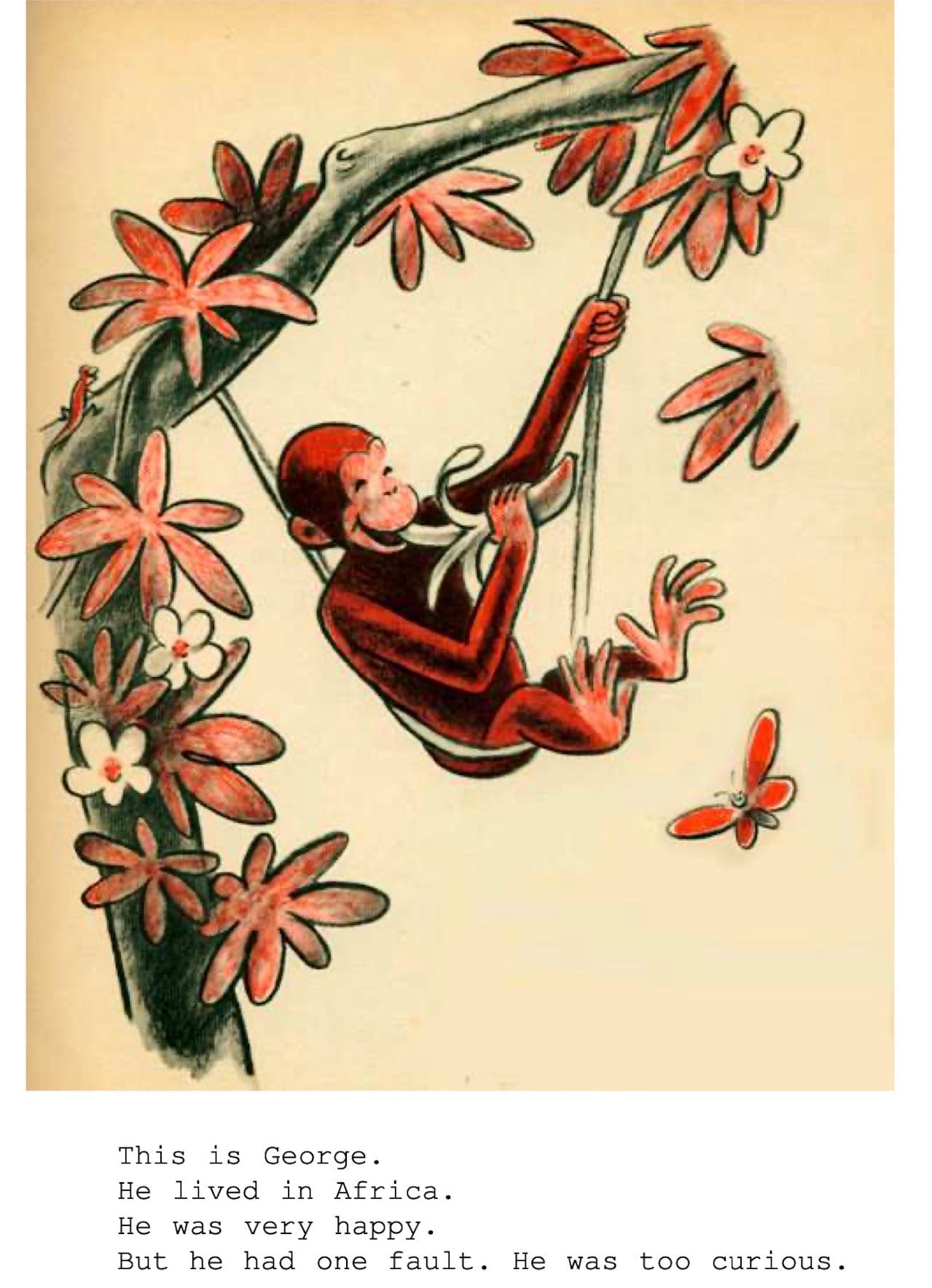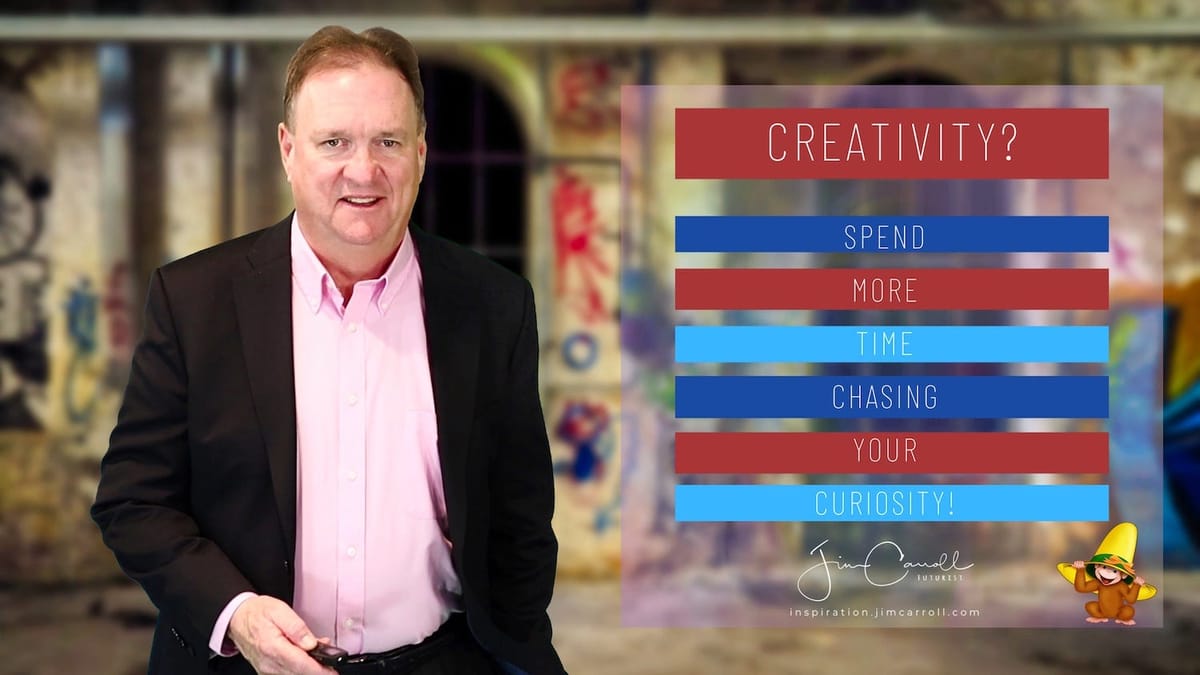I always loved the time I spent reading Curious George to my children!
The series of books caused them to ask lots of questions! Why does he always get into trouble? Why does the man wear a yellow hat? Why can seagulls fly? Why does he do that?
The first paragraph of the first book, though, defines a key character attribute:
This is George.
He lived in Africa.
He was very happy.
But he had one fault. He was too curious.

I take issue with that - curiosity should never be defined as a fault!
Indeed, no one should ever be faulted for being too curious, because it is one of the most important attributes of successful innovation and creativity. From that perspective, Curious George should be a role model for the concept of curiosity - it's his inquisitiveness mind that defines him, and within that, he shows several important pathways to creativity:
- with a little bit of curiosity, you can do anything
- meeting someone new can fire up your curiosity engine
- trying new things that you haven't done before often leads to fascinating results
- taking risks is an important part of learning
- creativity is chaotic - always getting in trouble can be a great thing!
- his predictability is only to be found in his unpredictability - serendipity circumstance seems to define him
- experimentation is critical to the exploration of new ideas, even if the results might be uncertain
- it's important to ask lots of questions
These are important leadership skills - the more you ask questions, examine new ideas, find new pathways, explore new ways of doing things, and generally poke around the edges of the future, the better positioned you are to expand your creative horizon. It's precisely the area of your curiosity that you should spend more time on, not less - even if it leads you into good trouble.
Otherwise, you are keeping yourself in the land of the status quo, doing the same old thing, stifling creativity through the slaughter of natural inquisitiveness. Curiosity should be embraced, not denied,
Over the years, I've come to realize that part of the fuel that fires my passion for my work is my intense curiosity - I've also come to realize that thinking differently has become critical to my success! So it is with you; in a time in which business models, markets, customers, industries, and clients are changing at an ever more furious pace, thinking differently about the world around you is a powerful and important personal trait to possess. You also need to ensure that you provide for a culture of creativity within your organization so that it can evolve at a pace that the future demands of it.
Creative organizations fuel a culture of curiosity and encourage their people to look for trends, signs of change, and opportunities everywhere. They know that innovation can come from tension, and that tension can come from people who don't fit the traditional corporate mold - or who get into trouble. They establish a collaborative culture in which information sharing is expressly encouraged. They also know that success comes from embracing change, not shying away from it. Not only that, but they know that true, real, sustainable success can only come from doing things differently, and that this in and of itself requires courage because change involves risk.
So do one thing to fire up your creativity - be more like Curious George!

